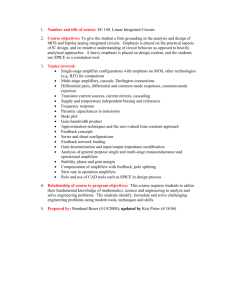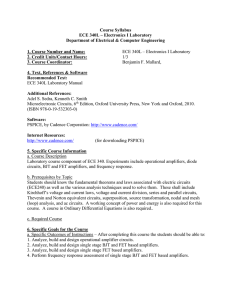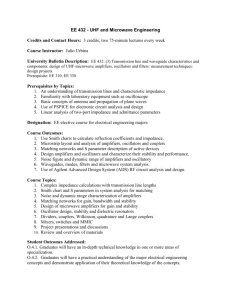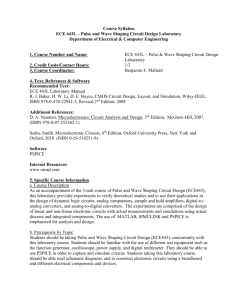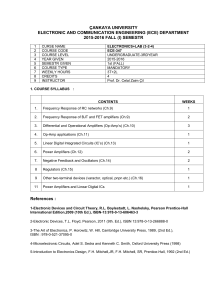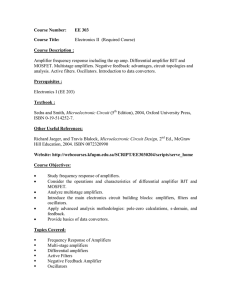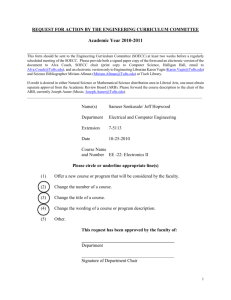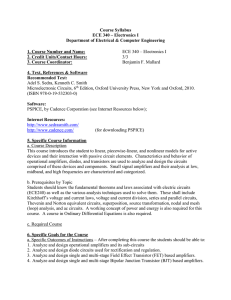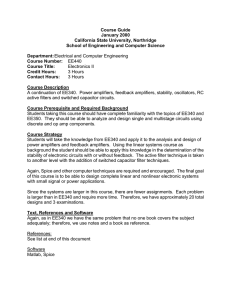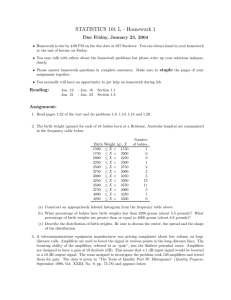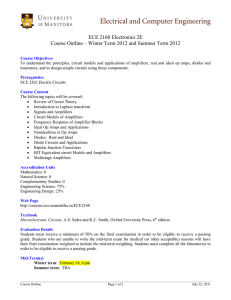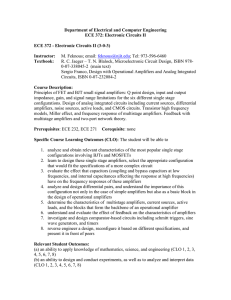ECE 440L (.doc)
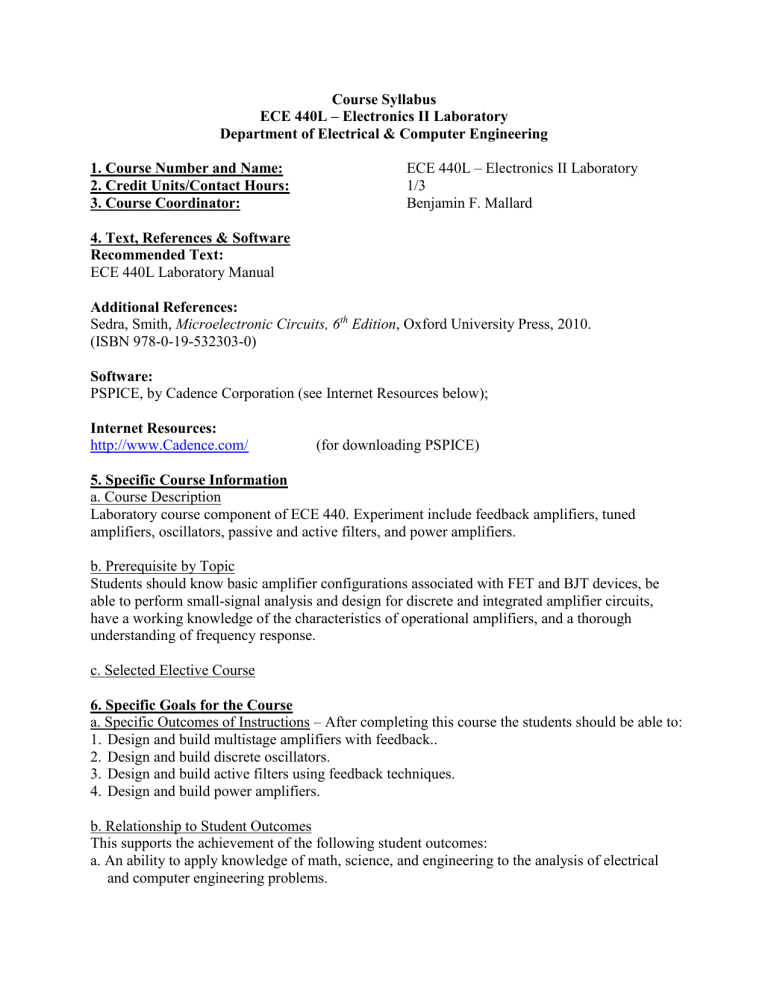
Course Syllabus
ECE 440L – Electronics II Laboratory
Department of Electrical & Computer Engineering
1. Course Number and Name:
2. Credit Units/Contact Hours:
3. Course Coordinator:
ECE 440L – Electronics II Laboratory
1/3
Benjamin F. Mallard
4. Text, References & Software
Recommended Text:
ECE 440L Laboratory Manual
Additional References:
Sedra, Smith, Microelectronic Circuits, 6 th
Edition , Oxford University Press, 2010.
(ISBN 978-0-19-532303-0)
Software:
PSPICE, by Cadence Corporation (see Internet Resources below);
Internet Resources: http://www.Cadence.com/ (for downloading PSPICE)
5. Specific Course Information a. Course Description
Laboratory course component of ECE 440. Experiment include feedback amplifiers, tuned amplifiers, oscillators, passive and active filters, and power amplifiers. b. Prerequisite by Topic
Students should know basic amplifier configurations associated with FET and BJT devices, be able to perform small-signal analysis and design for discrete and integrated amplifier circuits, have a working knowledge of the characteristics of operational amplifiers, and a thorough understanding of frequency response. c. Selected Elective Course
6. Specific Goals for the Course a. Specific Outcomes of Instructions – After completing this course the students should be able to:
1.
Design and build multistage amplifiers with feedback..
2.
Design and build discrete oscillators.
3.
Design and build active filters using feedback techniques.
4.
Design and build power amplifiers. b. Relationship to Student Outcomes
This supports the achievement of the following student outcomes: a. An ability to apply knowledge of math, science, and engineering to the analysis of electrical and computer engineering problems.
b. An ability to design and conduct scientific and engineering experiments, as well as to analyze and interpret data. c. An ability to design systems which include hardware and/or software components within realistic constraints such as cost, manufacturability, safety and environmental concerns. e. An ability to identify, formulate, and solve electrical and computer engineering problems. g. An ability to communicate effectively through written reports and oral presentations. oral presentation rubric. i. A recognition of the need for and an ability to engage in life-long learning. k. An ability to use modern engineering techniques for analysis and design. m. An ability to analyze and design complex devices and/or systems containing hardware and/or software components. n. Knowledge of math including differential equations, linear algebra, complex variables and discrete math.
7. Topics Covered/Course Outline
1. Single and Multi- Stage Amplifiers
2. Feedback Amplifiers
3. Oscillators
4. Active Filters
5. Switched Capacitor Filter Circuits
6. Power Amplifiers
Prepared by:
Benjamin F. Mallard, Professor of Electrical and Computer Engineering, November 2011
Ali Amini, Professor of Electrical and Computer Engineering, March 2013
